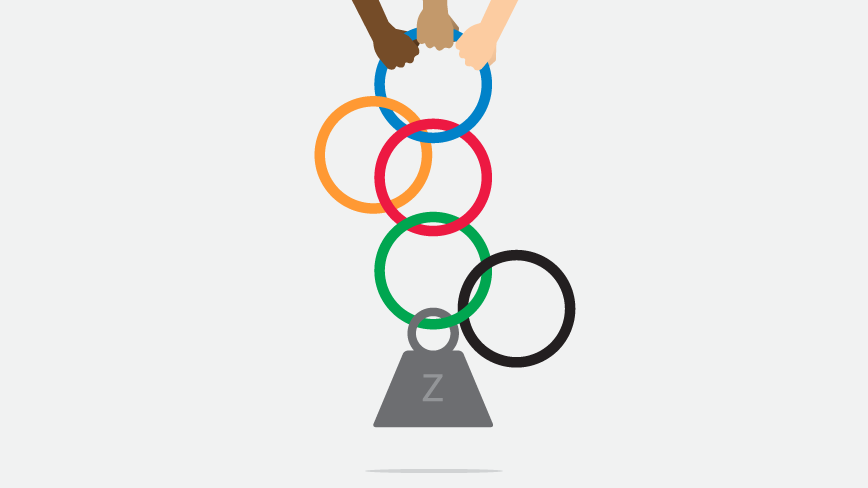Discover how brands are preparing for their 2016 Rio Olympics campaigns, including how relaxed endorsement rules lead to new Olympics marketing strategies.
Because of a wide range of concerns, this year’s Olympic games in Rio de Janiero, Brazil, are being covered in negative terms by many media outlets. Political instability and the outbreak of the Zika virus could potentially ruin what is usually a huge moment not just for international athletes but also for the enormous brands with multibillion-dollar sponsorships on the line.
Moreover, while media reports seem to be forecasting doom and gloom, many brands are not dissuaded by negativity. For example, U.S.-based payment provider Visa, which is the sole accepted charge payment at official Olympic venues, has seen no significant rise in trip cancellations among travelers set to attend the games. Citing financial and account data, the company projects between 400,000 and 500,000 visitors to the games.
Like Visa, other brands are gearing up to ensure that people around the world persevere by getting excited about the Olympics and the glimmer of magic it can offer.
Bringing People Together
One of the themes that many official Olympic sponsors are relying on is international camaraderie. Visa’s Olympic campaign kicked off with an ad featuring famous athletes from diverse national teams. Using liberal doses of humor, the ad emphasizes the idea of the world’s best gathering as a village of friendly competitors.
McDonald’s efforts aim for a similar feeling of internationalism but with a younger crowd. Its “Friends Win!” campaign captures the excitement and wonder international children experience when watching the games. “Friends Win!” includes appearances from 200 children hailing from a variety of countries, all of whom will appear at the opening ceremonies to absorb the magic firsthand.
Campaigns like these all subtly play up the positive aspects of the Olympics and the unique moment of having the entire world’s eyes in one place: wonder, excitement and thrilling competition. This overwhelming positivity can potentially dilute negative contexts being served up by media outlets.
Taking Zika Head-On
While many brands hope to carry on with exciting marketing efforts in spite of negative news, some brands are responding directly to Rio’s concerns. Ambev, the Brazilian-based arm of Anheuser Busch InBev, has created a Portuguese-language campaign aimed at spreading awareness and prevention for Zika.
The campaign’s video and poster ads urge citizens to dump out objects that could contain standing water. Ambev also helps fund the identification and elimination of Zika-carrying mosquito breeding grounds. Each ad uses the call-to-action tagline of “Pior que água parada é você parado,” which translates to “Worse than standing water is you just standing there.”
Major Rule Changes for Olympics Marketing
Olympics marketing has changed more so this year because of new strategies that are possible rather than old ones that are impossible. Specifically, the International Olympic Committee has ruled that athletes are allowed to endorse their sponsors verbally during the games and explicitly in ads indirectly referencing the games.
Athletic wear brand Under Armour has put itself at the forefront of this push. The brand sponsors around 250 athletes participating in the 2016 games. While Under Armour cannot say “Olympics” or feature intellectual property like the five rings in their campaign, they can use approaches connected to the idea of competition. For instance, they erected several outdoor gyms along a 50-mile stretch of Rio’s beaches to host daily workouts for fans.
So whether they are looking on the sunny side of the games, taking problems head on or exploring newfound opportunities, brands and marketers are showing us that athletes are not the only ones who must persevere on the international Olympic stage.

